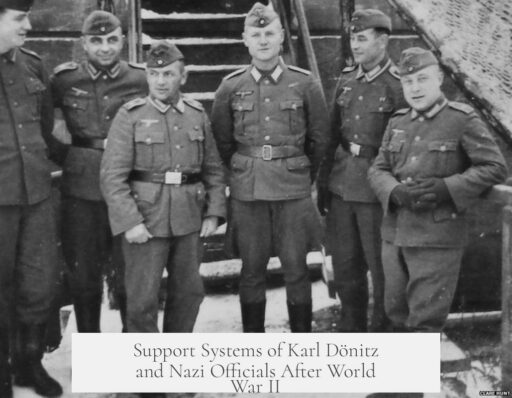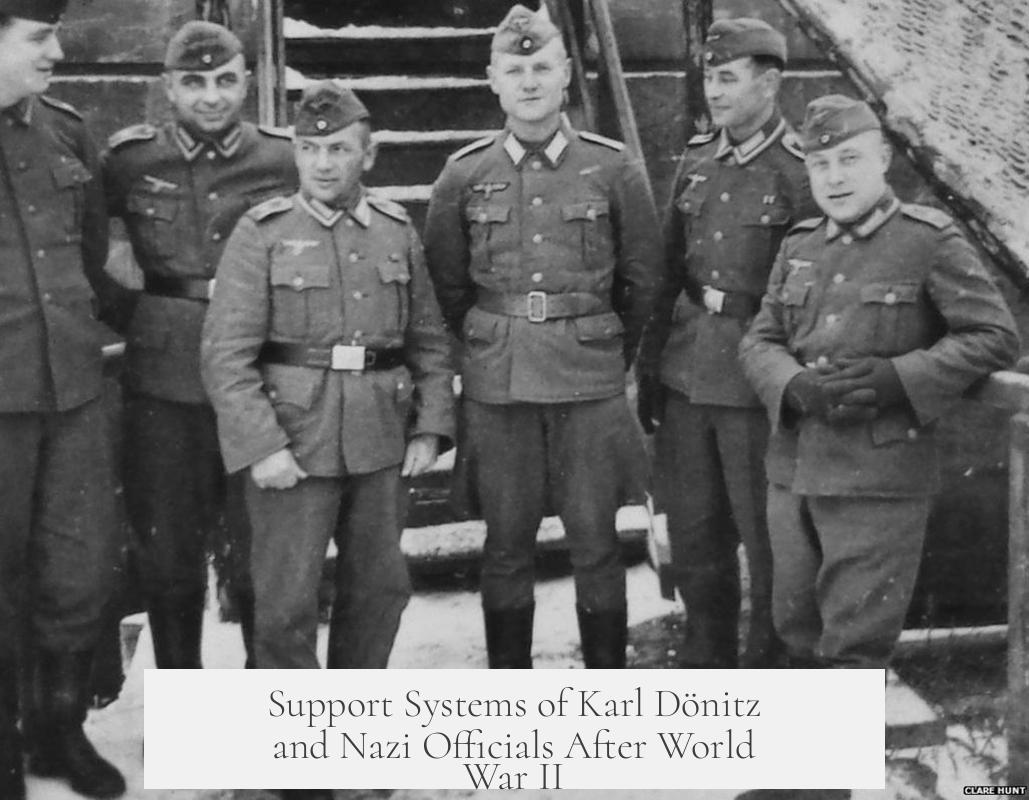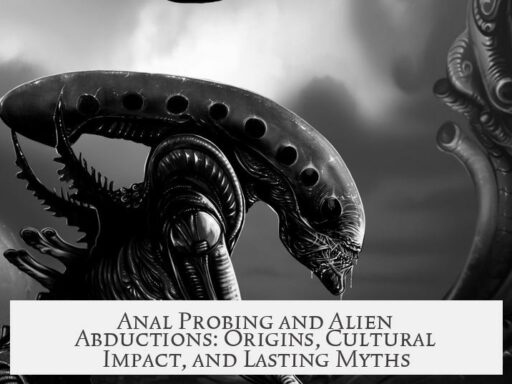After World War II, Karl Dönitz and other higher-ranking Nazi military officials supported themselves through a combination of reintegration efforts, limited employment opportunities, and personal pursuits. Many former officers faced considerable obstacles returning to civilian life. Imprisonment after the Nuremberg Trials delayed or complicated their transition. Upon release, some found roles as military advisers, particularly amid Cold War tensions.
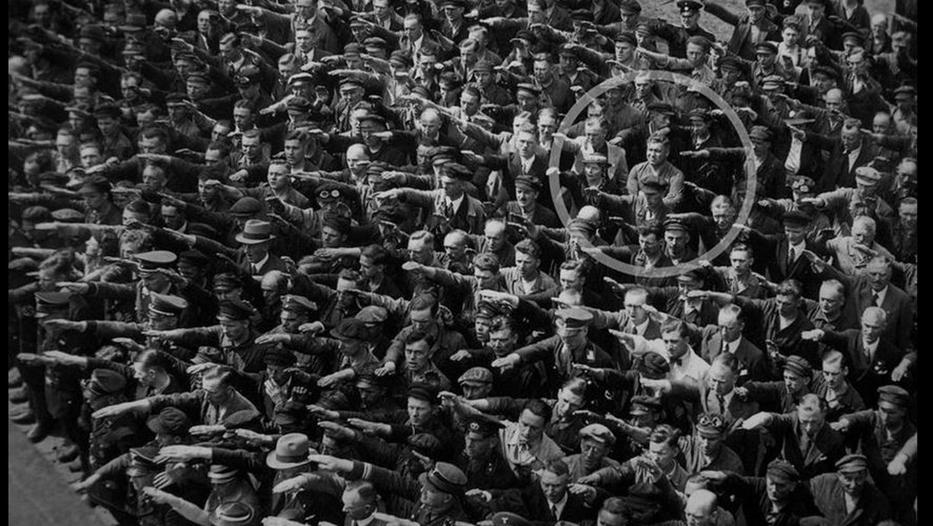
During the 1950s, NATO recruited several ex-Wehrmacht leaders, including those convicted of war crimes, to leverage their expertise against the Soviet threat. This had practical benefits for the West, but generated debate over the moral implications. These advisory roles offered former officers financial support and a semblance of professional purpose. However, public and political opposition often surrounded these appointments.
Karl Dönitz, who served as Germany’s head of state briefly after Hitler’s death, was sentenced to prison for his role in the Nazi regime. After his release, he maintained a low public profile. Dönitz wrote memoirs and engaged in historical commentary, providing a modest income and a way to shape the narrative around his wartime actions. He did not return to active military or governmental employment.
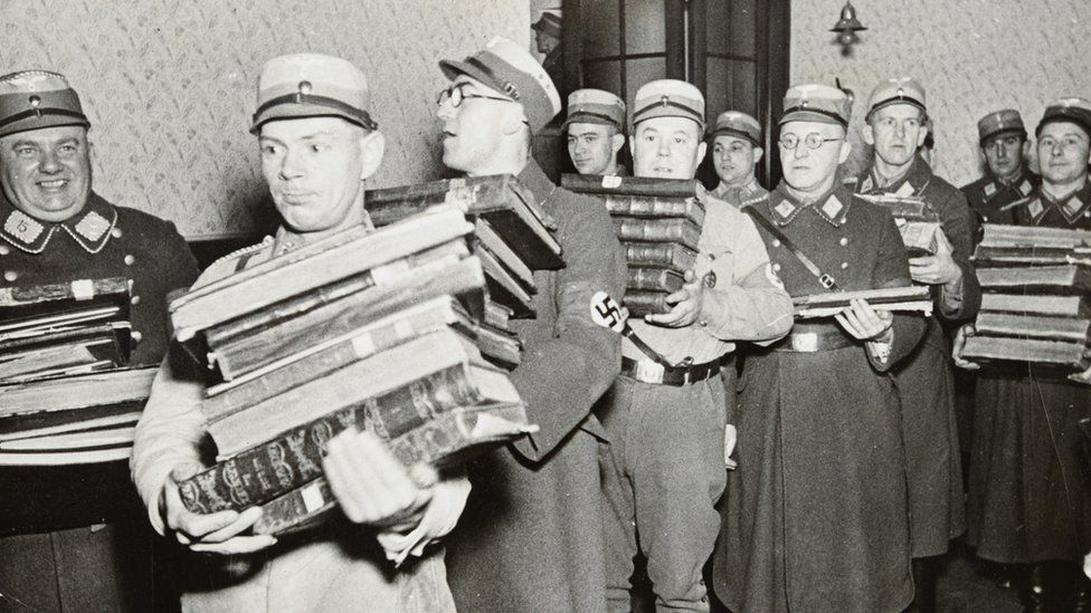
Other former Nazi officials experienced similar trajectories. Some secured employment in the private sector or took lower-profile positions. The broader societal process of denazification and the demands of the Cold War shaped these outcomes. Reintegration varied widely, depending on the individual’s wartime role, public perception, and geopolitical context.
- Post-war imprisonment marked the first phase for many high-ranking officers.
- Military advisory roles in NATO and related entities provided employment in the 1950s and 1960s.
- Memoirs and historical writing supplemented incomes for some, including Karl Dönitz.
- Reintegration into civilian life was uneven and influenced by Denazification policies.
Overall, former senior Nazi military officials navigated complex social and political environments to support themselves after 1945.
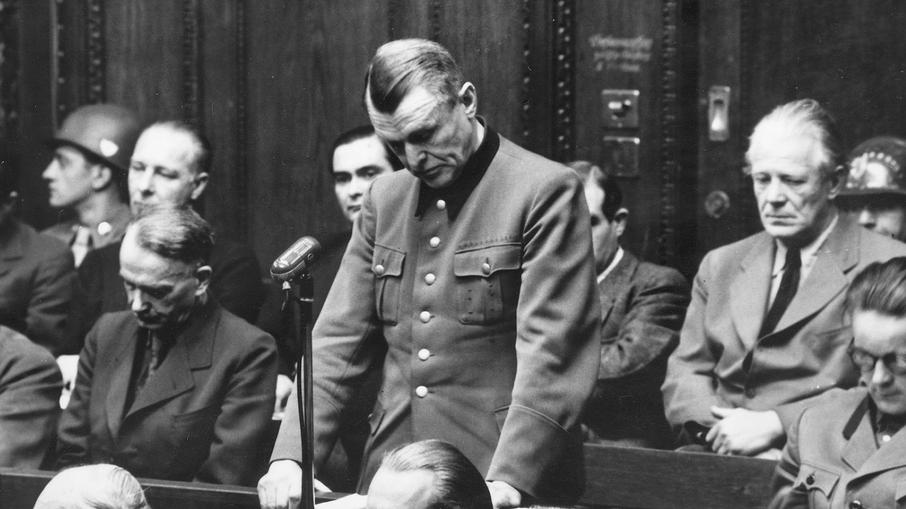
- Many faced imprisonment before reintegration.
- Some became military advisers during the Cold War, despite controversy.
- Karl Dönitz lived quietly after prison, earning income from memoirs.
- Post-war support depended on individual circumstances and geopolitical needs.
How Did Karl Dönitz and Other Higher-Ranking Nazi Military Officials Support Themselves Post-War?
The end of World War II marked not only a dramatic political shift but also a personal reckoning for top Nazi military officials. Karl Dönitz and his peers faced a complex reality after the Third Reich’s collapse: how to survive—and sometimes even thrive—in a world that had just condemned their past. So, what exactly happened to these men? How did they support themselves once the dust settled?
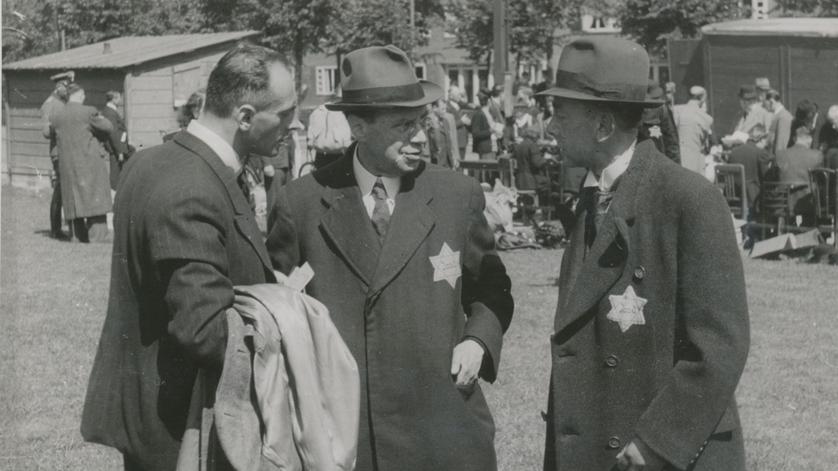
Let’s dive into this tangled post-war aftermath and uncover how former Nazi military elites navigated life after their infamous roles.
The Cold War Shifts the Game
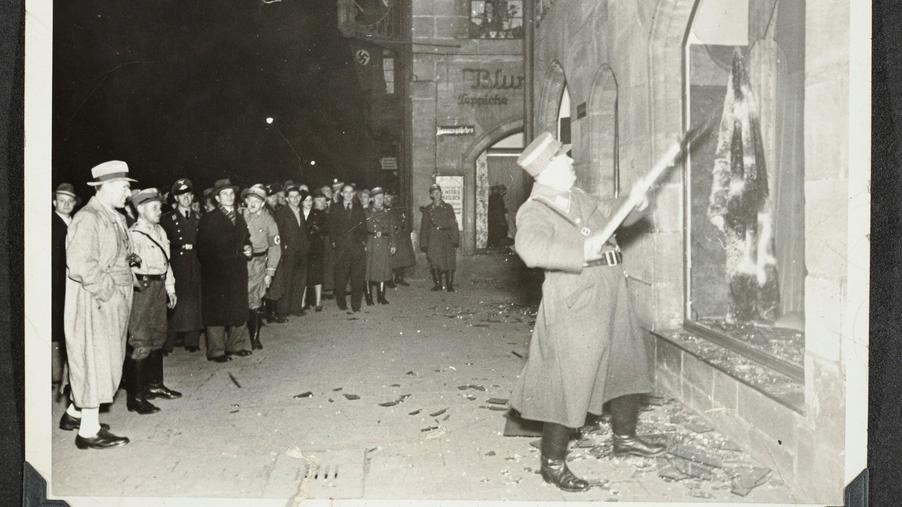
Initially, the path was rocky. Many of these officers ended up behind bars. Karl Dönitz himself served time after the Nuremberg Trials, convicted mainly for his role in continuing U-boat warfare and for his brief tenure as Hitler’s successor. But prison wasn’t their entire story.
Once released, decades-long Cold War tensions radically changed the West’s approach. The new geopolitical enemy wasn’t Nazi Germany; it was the Soviet Union now. This shift opened surprising doors for some former Wehrmacht officials.
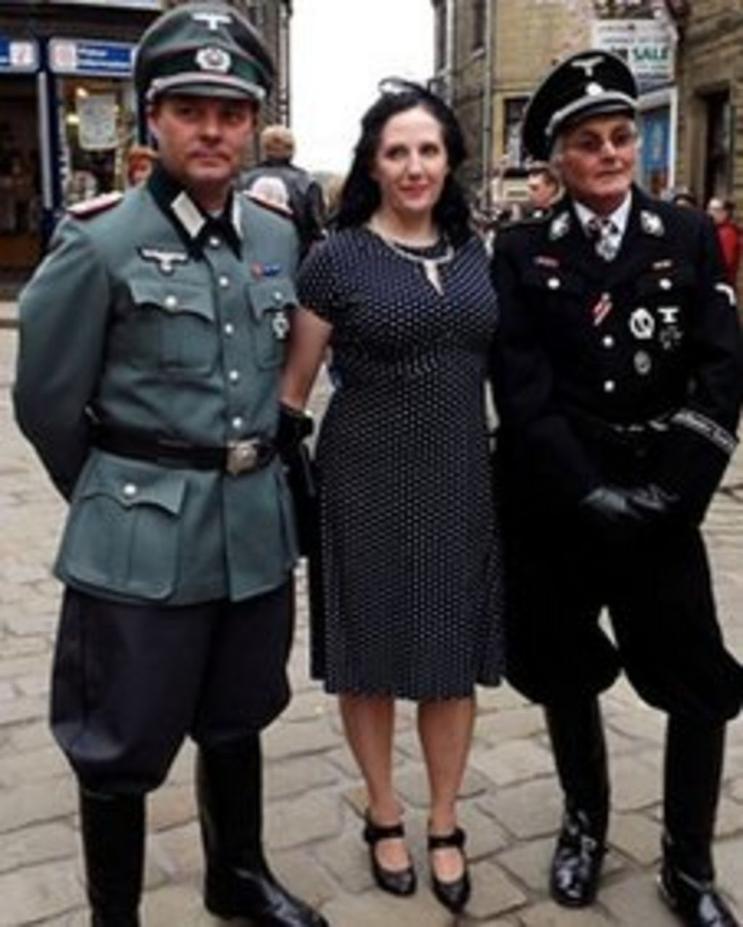
From Prisoner to Cold War Advisor
In the 1950s, several high-ranking Nazi officers found employment as military advisers, particularly with NATO and Western governments. Yes, you read that right. Those who had once led Germany’s military efforts were now consulting on defense against the USSR.
Take Field Marshal Erich von Manstein, for example. Despite his conviction as a war criminal, Western powers utilized his military expertise. The fear of Soviet expansion seemed to outweigh moral qualms about his past.
This created a controversial but practical support system for former officers. It wasn’t easy or widely accepted—but it was effective. The Cold War pragmatically repurposed these men’s skills, providing a post-war livelihood that was unimaginable just a few years earlier.
Society’s Reluctant Embrace and Reintegration
Outside official roles, reintegrating into everyday society posed huge challenges. Many former Nazi officers struggled to find steady work or acceptance in civilian life. Stigma and suspicion often followed them.
Still, some managed to rebuild quietly. They found jobs related and unrelated to their military past—some in business, others as consultants.
Their success stories weren’t broadcasted. Instead, they lived humble, sometimes shadowy post-war existences.
Karl Dönitz: Memoirs and Private Life
Unlike many who slid into obscurity, Dönitz took a slightly different route after his release from Spandau prison in 1956. He engaged in writing memoirs, reflecting on his naval career and the war.
Such publications were not just nostalgia trips; they became modest income sources and a means to influence public discourse on Germany’s military history. These writing efforts allowed him to maintain some level of financial independence post-war.
Once released, Dönitz led a comparatively quiet life until his death in 1980, having avoided public scandal beyond his trial. This contrasts with many Nazi officials who remained publicly vilified or economically destitute after liberation.
Putting It All Together: A Summary
| Post-War Support Method | Details and Examples |
|---|---|
| Military Advising Roles | Former Wehrmacht generals, including convicted officers, served as NATO advisers during the Cold War, utilizing their expertise despite controversy. |
| Writing and Memoirs | Karl Dönitz authored memoirs, supplementing his income and shaping military-historical narratives. |
| Reintegration into Civilian Society | Some found lower-profile jobs, most struggled with societal acceptance and financial stability. |
Were These Support Systems Justified?
It’s fair to ask, “Should individuals with such controversial pasts have been re-employed this way?” The answer isn’t simple. The post-war period was a time of paradox and pragmatism. Western powers prioritized immediate security needs amid escalating Cold War tensions.
Many civilians, both in Germany and Allied countries, felt uneasy or outright opposed to former Nazi officials receiving second chances—especially in military advisory positions. Yet, the harsh realities of the new world order often dictated otherwise.
One could say, history forced tough choices.
Lessons From Their Post-War Lives
The stories of men like Karl Dönitz reveal how war’s aftermath stretches far beyond battlefields. Survival, adaptation, and redemption form unexpected chapters.
For readers curious about the ripple effects of global conflict, this highlights an essential truth: even those on the losing side can carve paths to survival through resilience and sometimes compromise.
So next time you think about the aftermath of WWII, consider the complicated realities these former military leaders faced. It’s far from a simple tale of villains falling forever—it’s a nuanced history of Friedenspflicht (duty of peace) imposed on warriors in a world that changed overnight.
Would Dönitz’s post-war life have been different if the Cold War never happened? What support mechanisms exist today for military officers of similarly contentious backgrounds? These questions invite reflection on justice and memory in post-conflict societies.
One thing is certain: how these men supported themselves after the war remains a key part of understanding the wider historical and political shifts shaping mid-20th century Europe.
